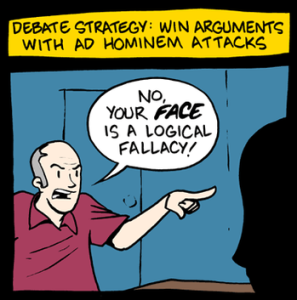It is widely assumed that the cognitivist era is over in Second Language Acquisition (SLA) studies.
So begins the abstract of Dwight Atkinson’s (2019) article Beyond the Brain: Intercorporeality and Co-Operative Action for SLA Studies. Atkinson’s argument is that the cognitivist view of SLA is wrong, and that an examination of two books can help “point toward a noncognitive future for the field”. The first book is by Meyer, Streeck, and Jordan (2017), which “explores the consequences of being a body in a world of other such bodies, versus the cognitivist vision of disembodied mind/brain”. The second book is by Goodwin (2018), which “ develops and empirically illustrates a theory of social action wherein heterogeneous, multimodal cultural tools and practices including language combine, accumulate, and transform in moment-to-moment use”. Both books “view human existence and action as fundamentally “ecosocial”—embodied, affective, and adaptive to human and nonhuman environments”.
This quick post is limited to a single argument: Atkinson misrepresents the cognitivist view adapted by scholars in SLA and fails to appreciate their motivation. In the field of SLA, psycholinguistic research treats learning an L2 as an individual process going on in the mind of the learner. By limiting the domain in this way, scientific research is enabled. No researcher in this limited domain denies that other research – into the social domain of L2 learning, for example – has merit, or that novelists, artists and teachers, for example, might have a brighter light to shine on the still incomplete understanding we have of SLA. What the researchers believe, however, is that their scientific approach gets the best results.
Atkinson (2019, p. 725) starts by defining cognitive science.
The foundational assumption of cognitive science, according to Dawson (2013), is that “cognition is information processing (p. 4).
He goes on
More recently, three major developments— connectionism, cognitive neuroscience, and so- called 4E cognition—have enriched and complexified cognitive science. They have done so, I suggest here, without threatening its cognitivist core.
He then looks at the cognitivist “tradition” in SLA. He says:
When SLA studies ties itself directly to cognitive science or cognitive psychology (e.g., Ellis, 2019; Long, 2010; Suzuki, Nakata, & DeKeyser, 2019), when input, output, processing, and competence comprise default terminology in the field, or when a hard line is drawn between cognitive and social, cognitivist traditions endure.
But what justifies this tradition? He asks:
(a) Biologically speaking, do our minds/brains not exist primarily to keep our bodies alive in dynamic environments—that is, for adaptive eco-logical action?
(b) Are human environments not furthermore pervasively social—that is, does our embodied adaptive action not depend crucially on social action and cooperation with others? and
(c) Is such social action/cooperation ultimately not what language and language learning are for?
And he concludes:
If these questions can be answered affirmatively, then cognition must be reconceived within dynamic ecosocial relations and action rather than as the ultimate source and outcome of human behavior, including language learning.
Expressed more rhetorically, to exorcise the cognitivist “ghost in the machine” (Ryle, 2009, p. 5) in SLA studies, should we not start putting “mind, body, and world back together again” (Clark, 1997, subtitle)?
Atkinson thinks all three questions can indeed be answered affirmatively and, using the two books mentioned above, he offers “intercorporeality and co-operative action” as “theoretical alternatives to cognitivism”. He then suggests how SLA studies, still blighted by the cognitivist ‘ghost in the machine’ can be replaced by a view informed by “embodiment, affect, multimodality, adaptivity, and ecosocial action”.
Here’s a rough summary of the conclusions Atkinson reaches:
- Giving affect-as-meaning deserves serious consideration when theorizing language learning and teaching.
- Computers/ information processors are poor models for the active, ‘hyperprosocial’ (Marean, 2015), fundamentally affect-driven organisms that human learners are.
- Learning is a product of affect, affiliation, identity, and shared meaning-making at least as much as it is of input frequency and/or conscious behavior. Thus, affect-loaded expressions—taboo words being paradigm examples—can be acquired on one or a few exposures, while plural-marking morphemes, article systems, and other formal grammatical machinery may never be.
All these conclusions can easily be accepted. They do almost nothing to challenge the work done by those working on a cognitivist theory of SLA – not even the second one. And if we look at the three questions Atkinson asks – “Do our minds/brains not exist primarily to keep our bodies alive in dynamic environments—that is, for adaptive eco-logical action”, etc., we can safely answer affirmatively without the slightest qualm.
Atkinson’s essay talks about cognitivism as a “tradition”, because his work is soaked in sociology. His appeal to the history of philosophy, for example, is socially informed and fails to appreciate the substance of the thought of those he cites. For example, nobody, but nobody, today, in the field of philosophy – and more particularly in the philosophy of science – gives any credence to a mind-body dualism: Atkinson’s use of other people’s use of Plato and Descartes is outdated nonsense. How long do we have to put up with those who challenge a scientific approach to SLA using this Ladybird summary of western philosophy, for pity’s sake.
Atkinson fails to address the use that a certain group of SLA scholars makes of cognitive science. The group, as he rightly says, includes those who fundamentally disagree about an explanation of SLA. Nativists of various hues, interactionists, and emergentists, for example, can’t all be right, and they might well all be wrong, but their theories, which are all based on a psycholinguistic, cognitivist approach, need to be criticised properly, rather than dismissed because they don’t take the right stance towards the environment. Reconceiving cognition within dynamic ecosocial relations and action might produce interesting results, and good luck to those who want to try it, but it’s wrong to suggest that those involved in developing a cognitivist theory of SLA see cognitive science as “the ultimate source and outcome of human behavior, including language learning”. They don’t.
As Gregg (2010) says, cognitive science sees the mind as the object of empirical scientific inquiry. Cognitive scientists ‘carve nature at its joints’, in order to categorize the domain in terms of natural categories. Cognition is located within the individual mind and cognitive science looks for natural categories, setting aside individual differences that might accidentally differentiate members of the same category. That’s what cognitive science does, and it’s results are impressive and on-going.
References
Atkinson, D. (2019) Beyond the Brain: Intercorporeality and Co‐Operative Action for SLA Studies. Modern Language Journal, 4, 724-738.
Gregg, K.R., (2006) Taking a social turn for the worse: The language socialization paradigm for second language acquisition. Second Language Research, 22, 4, pp 413-442.
I





















